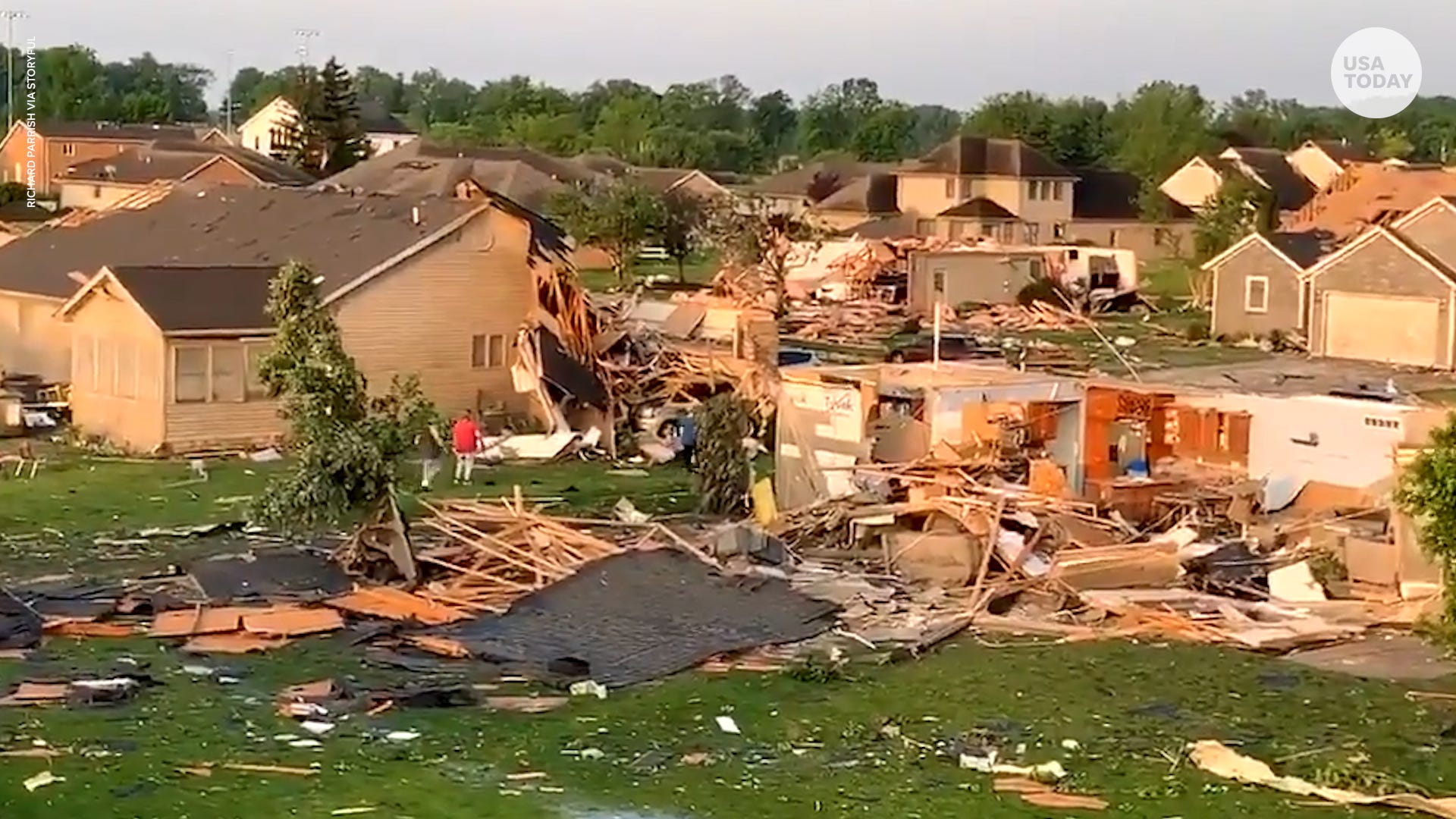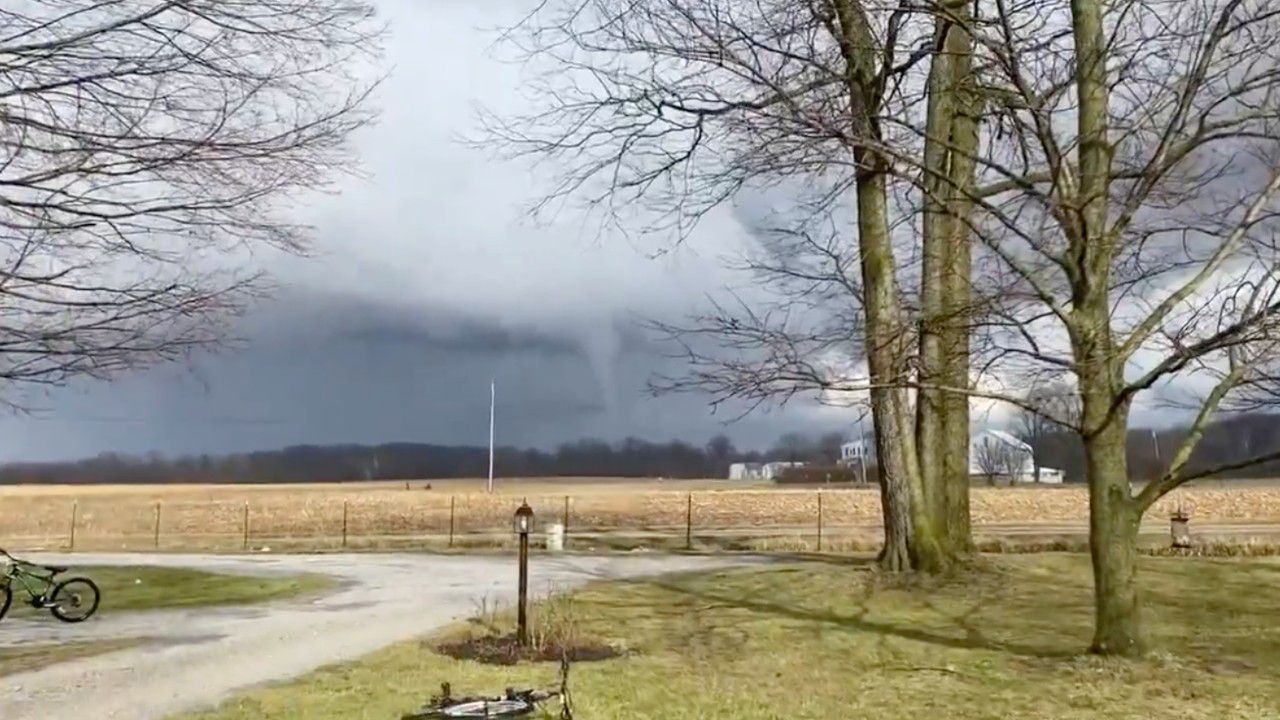Hey there, friend! Ever find yourself scrolling through your phone or turning on the TV during a stormy day wondering, "Is there a tornado warning in Columbus Ohio?" Well, you're not alone. Weather emergencies can be super stressful, but staying informed is the first step to keeping yourself and your loved ones safe. So, let's dive into what you need to know about tornado warnings in Columbus, Ohio, and how you can prepare for them.
Imagine this: the skies turn dark, the wind starts howling, and you hear that eerie sound of an approaching storm. Your mind immediately starts racing—do you seek shelter? Is it just a heavy rainstorm? Or is there a tornado warning in effect? It’s totally normal to feel overwhelmed, but having the right information can make all the difference. This article will break down everything you need to know about tornado warnings in Columbus, Ohio, so you’re ready if nature decides to throw a tantrum.
From understanding what a tornado warning actually means to knowing where to go and what to do during an emergency, we’ve got you covered. Think of this as your ultimate guide to staying safe when the weather gets wild. So grab a cup of coffee (or tea if that’s your thing), sit back, and let’s get into the nitty-gritty of tornado warnings in Columbus, Ohio.
Read also:Coach Kim Mulkeys Husband A Closer Look At Her Personal Life And Journey
Understanding Tornado Warnings in Columbus Ohio
What Exactly is a Tornado Warning?
Alright, let's start with the basics. A tornado warning is basically the weather gods saying, "Hey, a tornado might be coming your way!" It means that meteorologists have detected conditions favorable for a tornado to form or that one has already been spotted. In Columbus, Ohio, these warnings are issued by the National Weather Service (NWS) and are meant to give you enough time to get to safety. But don’t take it lightly—a tornado warning is serious business!
Now, here’s the deal: a tornado warning is different from a tornado watch. A watch means conditions are ripe for a tornado, but it hasn’t formed yet. A warning, on the other hand, means it’s time to act because a tornado is either on the ground or about to touch down. Think of it like this: a watch is like being on standby, while a warning is the signal to move!
Why Should You Care About Tornado Warnings?
Let’s face it—tornadoes are no joke. They can destroy homes, uproot trees, and cause serious injury or even death. In Columbus, Ohio, tornadoes aren’t as common as in some parts of the country, but they do happen. According to the NWS, Ohio experiences an average of 16 tornadoes per year, and while Columbus isn’t in "Tornado Alley," it’s still at risk. So, if you hear that there’s a tornado warning in Columbus Ohio, it’s crucial to take action immediately.
Here’s the kicker: tornadoes can strike without much warning. One moment you’re enjoying a peaceful afternoon, and the next, you’re dealing with a funnel cloud heading straight for your neighborhood. That’s why understanding tornado warnings and having a plan in place is so important. It’s not just about knowing what to do—it’s about being prepared.
How to Know if There’s a Tornado Warning in Columbus Ohio
Now that we’ve talked about what a tornado warning is, let’s discuss how you can stay informed. In today’s tech-savvy world, there are plenty of ways to find out if there’s a tornado warning in Columbus Ohio. Here’s a quick rundown:
- Weather Apps: Download apps like the Weather Channel or the NOAA Weather Radio app. These will send push notifications directly to your phone when a tornado warning is issued.
- Local News Stations: Keep an eye on channels like WBNS-10TV or FOX 28. They often interrupt programming to alert viewers about severe weather.
- Sirens: Columbus has outdoor warning sirens that sound when a tornado warning is in effect. If you hear them, it’s time to head indoors and seek shelter.
- Social Media: Follow local authorities and weather organizations on platforms like Twitter or Facebook. They often post updates in real-time.
Remember, technology is great, but don’t rely on just one method. Use multiple sources to ensure you’re getting the most accurate and up-to-date information.
Read also:Edelman Wife The Intriguing Story Behind The Woman By His Side
Preparing for a Tornado Warning in Columbus Ohio
Creating a Safety Plan
So, you’ve learned about tornado warnings—now it’s time to get practical. Creating a safety plan is essential if you want to protect yourself and your family. Start by identifying the safest place in your home to take shelter. Ideally, this should be a basement or an interior room on the lowest level, away from windows. If you don’t have a basement, a closet or bathroom can work too.
Next, make sure everyone in your household knows the plan. Practice drills regularly so that if a tornado warning is issued, everyone knows exactly what to do. It’s also a good idea to have an emergency kit ready. This should include things like water, non-perishable food, flashlights, batteries, and a first-aid kit. Trust me, you’ll be glad you have it if the power goes out or you need to evacuate.
Staying Safe During a Tornado Warning
Alright, let’s say you hear that dreaded siren or get a notification saying there’s a tornado warning in Columbus Ohio. What do you do? First, stay calm—panicking won’t help anyone. Head to your designated safe spot immediately and stay there until the warning has expired. If you’re outside or in a vehicle, try to find shelter in a sturdy building. If that’s not possible, lie flat in a low-lying area and cover your head with your hands.
Here are a few more tips to keep in mind:
- Avoid windows and glass doors—they can shatter and cause injuries.
- Stay tuned to local news or weather apps for updates.
- If you’re in a public place, follow the staff’s instructions and head to the designated shelter area.
Historical Tornado Events in Columbus Ohio
Notable Tornadoes in the Area
Let’s take a quick look at some of the notable tornado events in Columbus Ohio’s history. While tornadoes aren’t as frequent as in other parts of the country, they’ve still left their mark. For example, in 1998, a tornado touched down in Franklin County, causing significant damage. And in 2019, a series of tornadoes hit central Ohio, including Columbus, resulting in widespread destruction and power outages.
These events serve as a reminder that tornadoes can happen anywhere, even in areas where they’re less common. That’s why it’s so important to be prepared and know what to do if a tornado warning is issued.
Tornado Warning Technology and Alerts
How Meteorologists Predict Tornadoes
Ever wondered how meteorologists know when to issue a tornado warning? It’s all thanks to advanced technology and years of research. Doppler radar is one of the main tools used to detect tornadoes. It works by sending out pulses of energy that bounce off objects in the atmosphere, like raindrops or debris. When the radar detects a debris ball or a tight rotation, it’s a strong indication that a tornado is forming.
But radar isn’t the only tool in the meteorologist’s arsenal. They also rely on storm spotters and weather balloons to gather data. All of this information is analyzed to determine whether a tornado warning should be issued. It’s a complex process, but it’s incredibly effective at keeping people safe.
Community Preparedness and Response
How Columbus Ohio Responds to Tornado Warnings
Columbus Ohio has a robust emergency management system in place to deal with tornado warnings. The city works closely with the NWS to ensure residents are informed and prepared. In addition to the outdoor warning sirens, they also provide resources like emergency shelters and evacuation routes. Local authorities often host community events to educate residents about tornado safety and preparedness.
It’s also worth noting that Columbus has a strong sense of community. During emergencies, neighbors often come together to help one another. Whether it’s checking on elderly residents or clearing debris, the people of Columbus show incredible resilience in the face of adversity.
Common Myths About Tornado Warnings
Separating Fact from Fiction
There are a lot of myths out there about tornado warnings, and it’s important to separate fact from fiction. For example, some people believe that opening windows during a tornado will equalize pressure and prevent damage. This is absolutely false! Opening windows can actually make things worse by allowing debris to enter your home. Stick to your safety plan instead.
Another common myth is that tornadoes only happen in certain areas. While it’s true that some regions are more prone to tornadoes than others, they can occur anywhere. Columbus Ohio might not be in Tornado Alley, but that doesn’t mean it’s immune. Stay vigilant and prepared no matter where you live.
Conclusion: Stay Safe, Stay Informed
Alright, we’ve covered a lot of ground here. From understanding what a tornado warning is to knowing how to stay safe during one, you’re now armed with the knowledge to protect yourself and your loved ones. Remember, staying informed is key. Use multiple sources to stay updated, create a safety plan, and always take tornado warnings seriously.
So, the next time you find yourself asking, "Is there a tornado warning in Columbus Ohio?" you’ll know exactly what to do. And don’t forget to share this article with your friends and family—knowledge is power, and the more people who are prepared, the better. Stay safe out there, and let’s hope those skies stay clear!
Oh, and before you go, leave a comment below letting us know your best tornado preparedness tip. Or, if you found this article helpful, share it on social media so others can benefit too. Thanks for reading, and we’ll see you in the next one!
Table of Contents
- Understanding Tornado Warnings in Columbus Ohio
- What Exactly is a Tornado Warning?
- Why Should You Care About Tornado Warnings?
- How to Know if There’s a Tornado Warning in Columbus Ohio
- Preparing for a Tornado Warning in Columbus Ohio
- Creating a Safety Plan
- Staying Safe During a Tornado Warning
- Historical Tornado Events in Columbus Ohio
- Notable Tornadoes in the Area
- Tornado Warning Technology and Alerts
- How Meteorologists Predict Tornadoes
- Community Preparedness and Response
- How Columbus Ohio Responds to Tornado Warnings
- Common Myths About Tornado Warnings
- Separating Fact from Fiction
- Conclusion: Stay Safe, Stay Informed


